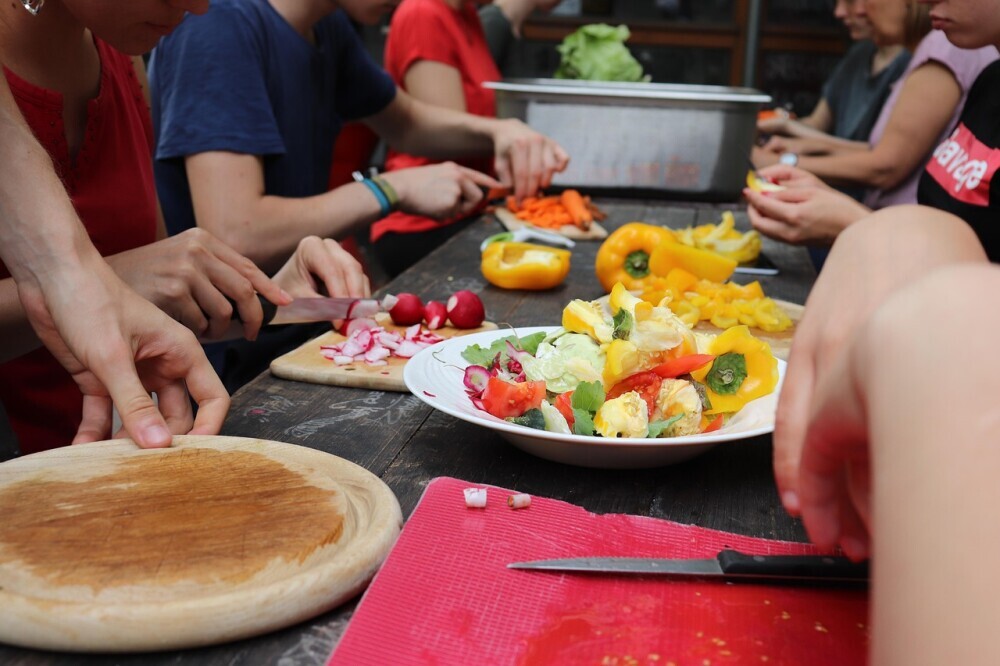Introduction
The art of sharing responsibilities in a homeschool household is very important. When everyone pitches in, daily life and study efforts blend seamlessly. Not only does this approach ease the daily load, it also helps build an environment filled with open communication and mutual respect. In our homeschool setting, tasks range from preparing lessons and meals to cleaning and organizing study spaces. This careful distribution reduces stress and builds self-confidence in young learners who get involved in everyday tasks.
In this article, I will offer practical tips to help your family work together efficiently. You will see how even small changes can create eye-catching improvements in organization and teamwork. Sharing responsibilities creates an atmosphere where everyone feels included and ready to support one another.
This post may contain affiliate links. When you click and purchase from any of our links, we may get a small commission at no extra cost to you. For more information, please see our affiliate disclosure.
Understanding Sharing Responsibilities in a Homeschool Household
Sharing responsibilities means every family member contributes to the household’s daily needs. In a homeschool environment, this approach lightens the load for parents and teaches kids essential life skills. Even young children can help with simple tasks, learning time management and accountability along the way. When each member contributes—from preparing meals to tidying up study areas—the overall atmosphere becomes cooperative and supportive, building pride and unity among everyone.
Practical Tips for Sharing Responsibilities in a Homeschool Setting
Implementing shared responsibilities in your homeschool routine can be a real game changer. One effective approach is to set up a daily schedule where every person, from the youngest child to an adult, is assigned specific tasks. Consider creating a chore chart that everyone uses as a guide. By rotating responsibilities, tasks stay fresh and no one gets stuck doing the same activity all the time. For example, different roles might include meal preparation, cleaning, or organizing learning materials. In addition, incorporating short breaks where chores are mixed with educational activities can make the day more engaging and fun.
Creating a Collaborative Environment for Sharing Responsibilities
Creating a truly collaborative atmosphere is key. It is important to make sure every voice is heard when planning daily tasks. A shared space where the schedule is visible helps everyone understand their role. This common view turns chores from burdens into shared goals. When children and adults together discuss what works best, the entire household benefits from open communication and stronger teamwork. This open discussion helps everyone feel like a valued part of the home community.
Integrating Sharing Responsibilities with Homeschool Activities
Mixing household tasks with learning enhances the homeschool experience. When responsibilities are part of the curriculum, children understand that education goes beyond books. For instance, a group project might involve organizing a home library or setting up a mini science station. This hands-on approach ties academic lessons to daily life and shows the practical benefits of working together. By linking tasks with learning goals, children appreciate the clear structure and purpose behind each assignment.
The Benefits of Effective Sharing Responsibilities in Homeschooling
There are many benefits to sharing responsibilities in a homeschool environment. When tasks are divided fairly, stress levels drop and everyone—parents and children—experiences a boost in confidence. This system makes management of daily activities smoother while leaving room for creative thinking and innovation. A shared workload prevents burnout and nurtures important problem-solving skills. Over time, children learn that every small contribution counts and that collective efforts lead to substantial rewards. As teamwork grows, the entire family becomes more resilient and better prepared to meet challenges in both academics and daily life.
Building Routines That Encourage Sharing Responsibilities
Simple, consistent routines lay the foundation for fair task sharing. A well-planned day helps everyone know what to expect and when to lend a hand. Starting with a daily checklist that outlines tasks for different parts of the day—morning tidying, midday snack preparation, or evening cleanup—can make a big difference. This structure not only smooths the way for household management but also teaches kids about planning and discipline. When every family member follows a set plan, the whole home runs more efficiently. Consistent routines also reinforce the idea that every individual’s effort is very important and builds a culture centered on shared goals and mutual support.
A Sample Daily Routine
Below is an example of a daily routine that incorporates shared responsibilities. In the morning, the family gathers for a quick discussion of the day’s tasks. During mid-morning, one child might help prepare a snack while another organizes learning materials. At lunch, roles like meal preparation and table setting are rotated among family members. After lessons, everyone spends a few minutes tidying up the study area. Finally, the day ends with a brief family meeting to review accomplishments and plan for tomorrow. This routine spreads out responsibility and ensures that everyone feels involved.
Managing and Overcoming Challenges in Sharing Responsibilities
Even with the best plans, challenges can arise when trying to share responsibilities. Sometimes the balance between lessons and chores may feel overwhelming, and on busy days, tasks might pile up quickly. It is important to remember that perfection is not the goal—progress is. Open discussions about what is working and what needs to change can make a big difference. If someone feels overburdened, consider swapping tasks or taking a short break. A flexible attitude and willingness to adjust schedules are crucial for long-term success. Each small step toward improved sharing helps create a smoother, more balanced home environment.
Overcoming Resistance with Teamwork
When resistance to sharing tasks appears, clear communication is essential. Sometimes, a family member may feel that certain duties are too challenging or unfairly assigned. In these instances, a quick meeting to speak up and explore alternatives can help a lot. Turning chores into a fun, timed game can also ease tension and make the tasks seem less daunting. This method not only addresses concerns but also strengthens the whole team by ensuring everyone’s input is heard and valued.
Balancing Academics and Duty
Keeping academic pursuits and household duties in check requires careful planning. Setting aside short periods for chores—immediately after a study session, for example—can help clear the mind and refocus energy. This organized approach ensures that both learning and routine tasks get the attention they need. By making room for academics and daily responsibilities, no area is neglected, leading to a more efficient and satisfying homeschooling experience.
Final Thoughts
Wrapping up, the adventure of sharing responsibilities in a homeschool household offers transformative benefits. When every family member, regardless of age, plays a part, the home becomes a space of mutual respect, cooperation, and joy. A balanced approach to chores and studies lightens the daily load and builds lifelong skills like responsibility, organization, and teamwork. Small, consistent efforts lead to greater harmony and help prevent burnout. Over time, everyone learns that contributing to the household is rewarding and goes far beyond simply finishing tasks. It nurtures a sense of belonging, pride, and creative problem solving. As each day brings new opportunities to support one another, the benefits of shared efforts shine through, enriching both educational outcomes and family life.
Additional Resources
- Article – Keep Homeschooling Fun Without Burnout
- Article – Self-Care Through Seasonal Traditions: Year-Round Ideas
When you click and purchase from any of our links, we may get a small commission at no extra cost to you. For more information, please see our affiliate disclosure.


